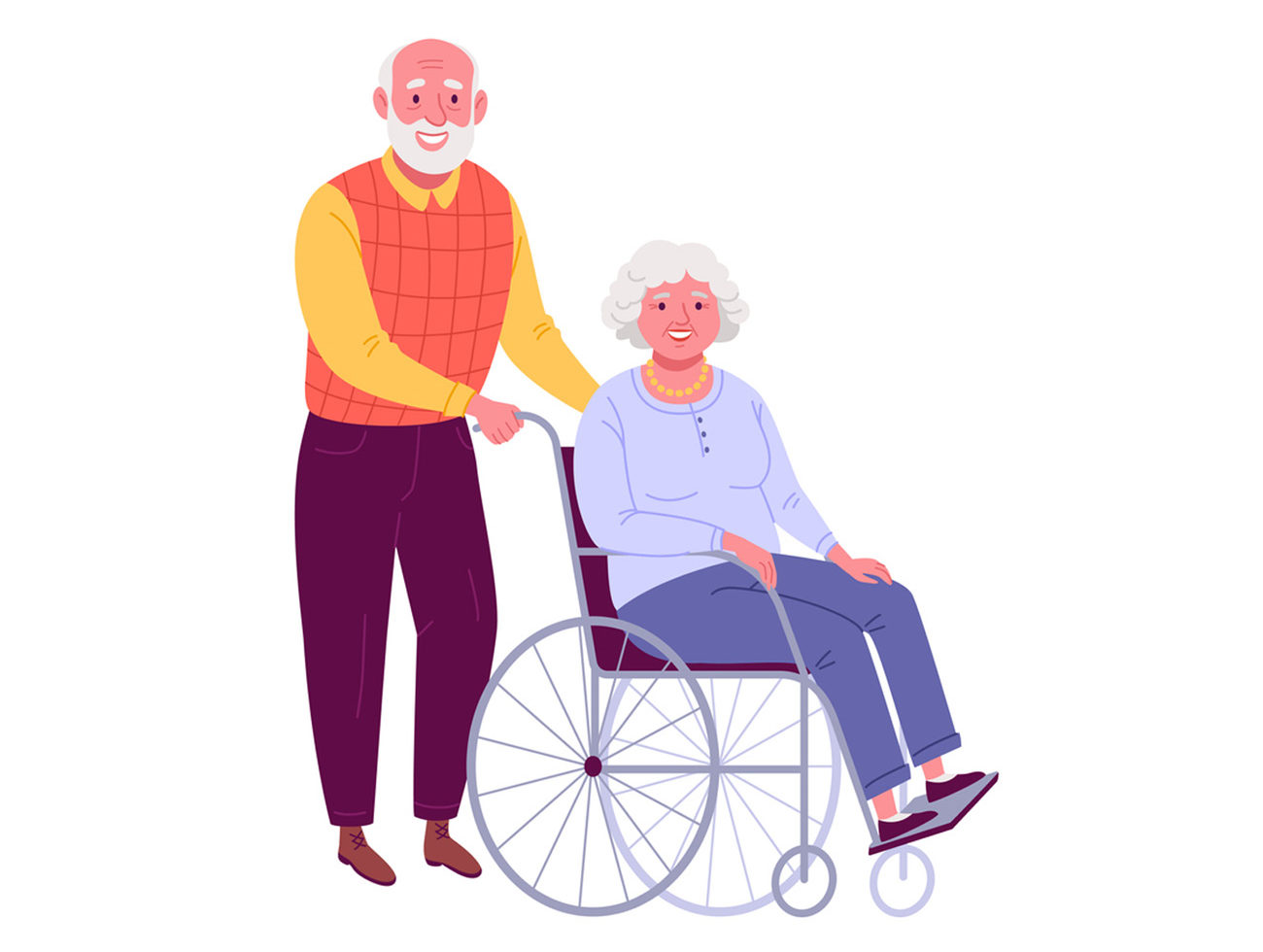When a couple is young, in love, and celebrating the start of their lives together, they’re not thinking about what “in sickness and in health” means at age 70, 80 or beyond. They’re certainly not ready to plan for their long-term care needs, such as assisted living or skilled nursing. Unfortunately, they won’t be able to put the future off forever.
The reality is that 1 in 3 older adults has Alzheimer’s or another form of dementia when they pass away, and the figures are rising (2013 Alzheimer’s Disease Facts and Figures, Alzheimer’s Association). It’s likely that at some point one member of our happy young couple will need long-term care.
Professionally and personally I am seeing more spouses who are growing older at different rates. When illness or cognitive decline presents itself, the healthier spouse has to take on a new, difficult, and often emotionally and physically draining role: Caregiver. The caregiver-spouse must care for his or her frail partner, as well as maintain the home, cook, pay bills, and carry on with day-to-day living. Family members and outside agencies may be able to offer occasional relief, but in most cases the caregiver-spouse bears most of the burden. All too often, the health of the healthier spouse starts to fail as well — a bad situation for both.
I am an advocate for the continuing care retirement community (CCRC) for many reasons — and to my mind a couple can make no better choice than a CCRC. In the senior living field, a CCRC provides one-stop shopping: independent living, assisted living, memory support care, and nursing care, all on one campus. When a couple moves into an independent living apartment, help is on hand if one spouse’s needs should change due to physical or cognitive impairment. When that spouse moves to a different level of care, the couple can continue to stay in close contact every day.
At Central Baptist Village, several couples have one member who lives in independent or assisted living, while the other benefits from the care and support offered by our memory care programs or our nursing pavilion. Moving into a continuing care retirement community has been described as a lifesaver for these couples. Professionals provide the needed care, so they are free to share their private time together. You can see them strolling through the gardens, sipping coffee in the café, and attending entertainment programs — in short, enjoying life.
A CCRC is also great for couples whose energy or activity levels are no longer in sync. Maybe one spouse wants to travel while the other is happy to watch TV at home. Life at a continuing care retirement community offers each individual abundant choices for this chapter of life. Most CCRCs feature lifelong learning classes, social opportunities, fitness centers, craft rooms, libraries, and other outlets for a variety of interests, from intellectual challenges to physical fitness.
It’s better to start planning for the future now, when in good health, than to wait for something to happen. If you want to learn more, call 708-583-8527. We’re here to help you stay together “in sickness and in health.”



